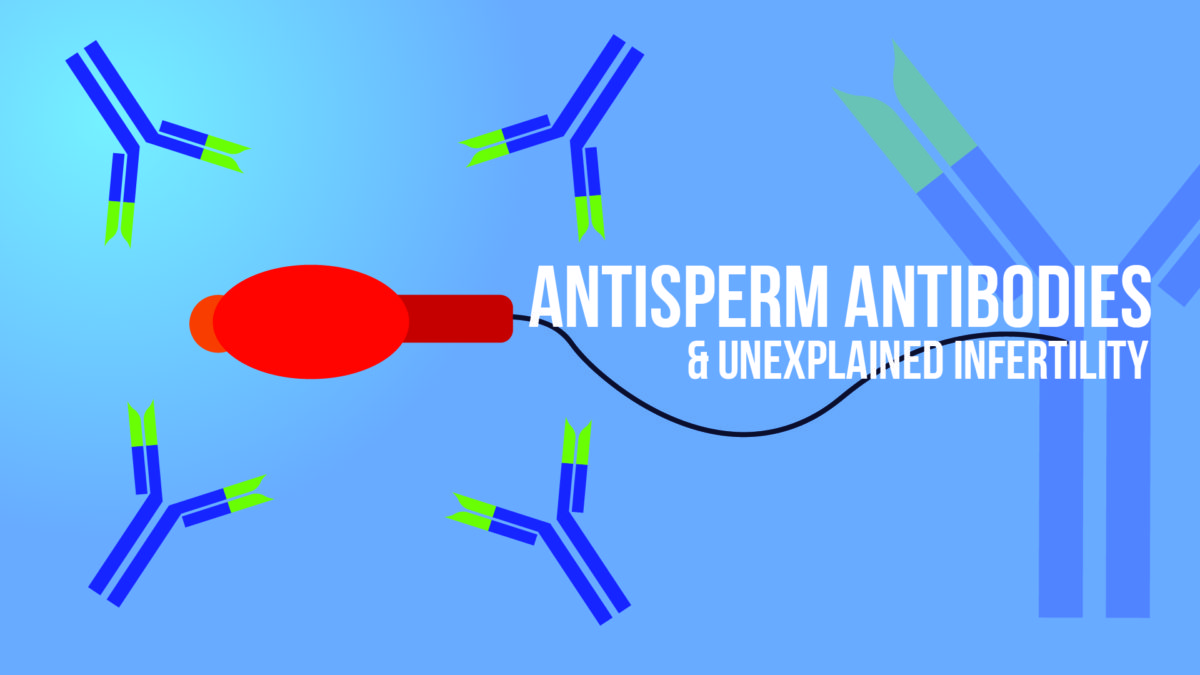Antisperm Antibodies sounds like an intimidating medical term at first. But fear not! It’s my job to take this complex topic about unexplained infertility and break it down to simple, easy to understand points.
You might already have guessed that we are going to talk about an immune disorder. So I think, it’s best if we can briefly understand the purpose and mechanism of antibodies.
If White blood cells are the Policemen of our body, then it’s not wrong to label Antibodies as bullets. But unlike (some) Policemen in real life, these white blood cells (Lymphocytes) release antibodies only to attack the foreign objects (foreign antigens). Isn’t that great?
But how do the white blood cells learn to separate own cells from foreign bodies?
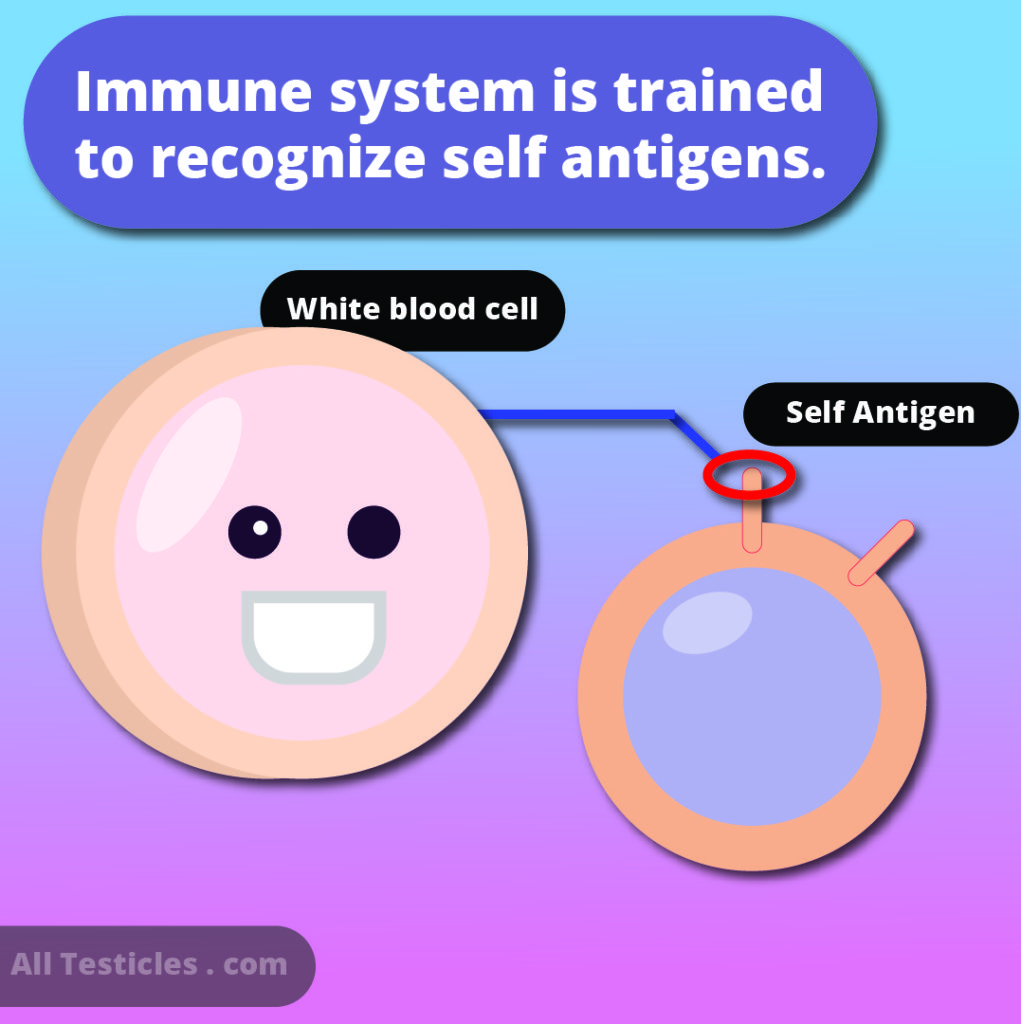
Well, that starts in the fetal life. The body exposes its normal molecules (self antigens) to the developing immune system, and trains the Immune system not to attack the self-tissues. Therefore the molecules which are not present during the fetal life will be identified as foreign bodies by the immune system.
When do you think our body starts to produce Sperm? Yeah, you guessed it right! Only after the puberty. Therefore, as far as our Immune system thinks, our own sperm are foreign bodies needed to be eradicated. But fortunately, there’s a blood-testis barrier which keeps the sperms from the reach of white blood cells. In other words, our Immune system is usually not aware of the presence of sperms in our body.
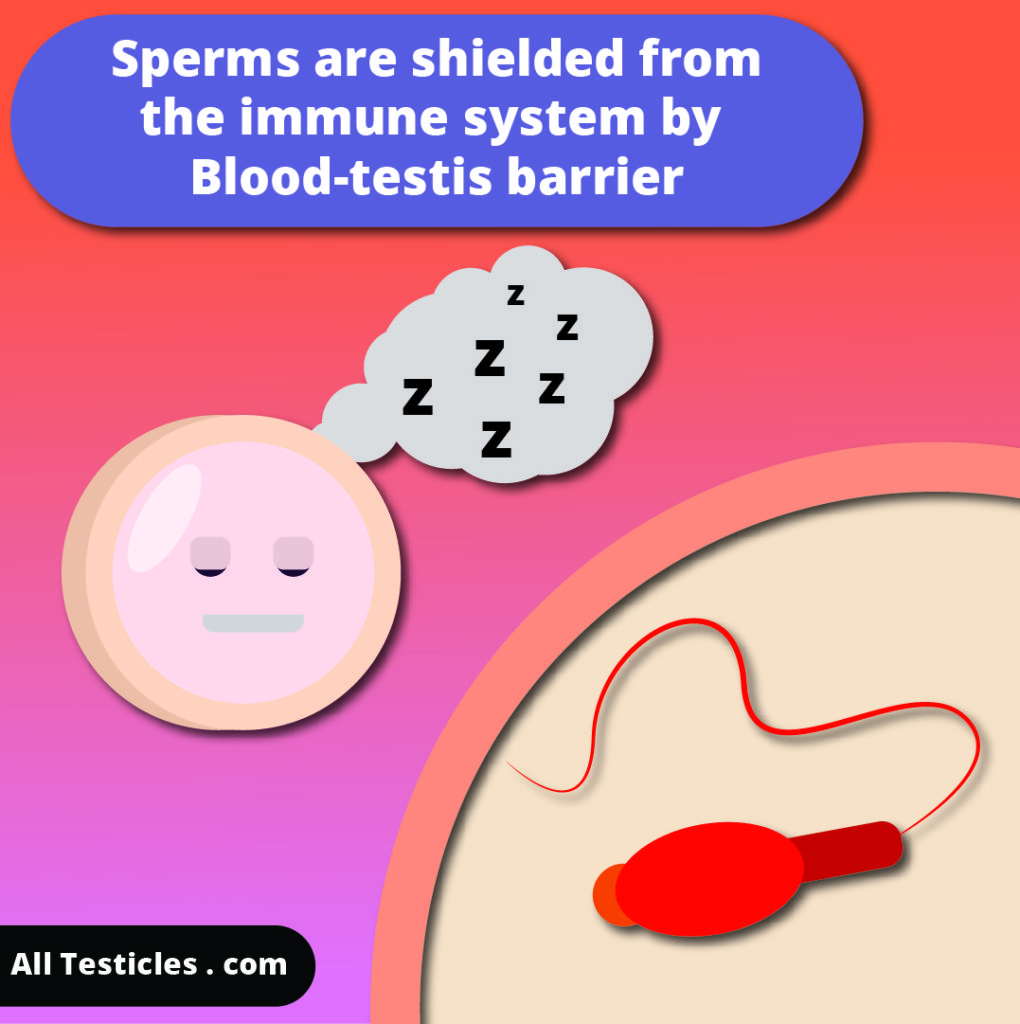
Some conditions can break this blood-testis barrier and expose the sperms to the Lymphocytes in the blood. They recognize sperm as foreign bodies and start producing antibodies against them. Can you guess the name of these antibodies? Absolutely! They are known as Anti Sperm Antibodies!
Antisperm antibodies and Unexplained infertility
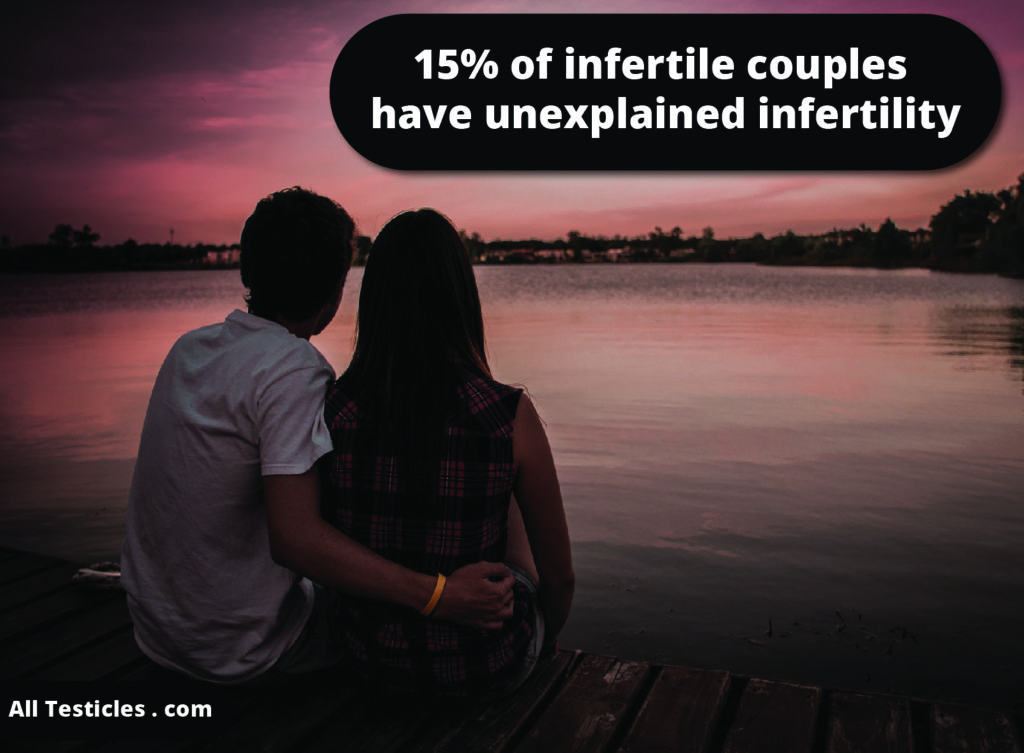
It’s estimated that one in five couples in U.S.A is infertile. When such a couple meets gets medical support, the doctor evaluates both the man and woman extensively to find the cause for infertility. Usual the causes vary in men and women, but if found, we can always try to correct the cause to improve the chances of fertility. Unfortunately in United States of America 15% of infertile couples have unexplained infertility. One hypothesis for unexplained infertility suspects immune reactions against sperms by Anti sperm antibodies.
Having said these, you have to realize that presence of Antisperm Antibodies doesn’t necessarily mean that you are infertile. Antibodies will make it harder for the sperm cell to fertilize the egg. But usually, Antibodies alone aren’t enough to make it impossible to get pregnant.
Do only men develop Antibodies against sperms?
Earlier I explained how men could develop Anti Sperm Antibodies when the blood-testis barrier is broken. If you understood the principle behind it, then it’s even easier to understand how women can develop antibodies against sperms.
The female reproductive track is well protected by a thick mucosal layer. Any disruption taken place in this mucosal layer can expose the sperms to the immune system.
How does Antisperm Antibodies affect sperms?
- In men, when Antisperm Antibodies (ASA) bind with sperms, they can trigger immune reactions to damage the sperms. These antibodies can also clump sperm cells together and impair their functions further. As a result, we can observe many abnormalities in semen analysis.
- Teratozoospermia: Abnormal sperm shapes
- Asthenozoospermia: Abnormal sperm motility
- Oligozoospermia: Abnormal sperm counts
- In women, when Antisperm antibodies are developed, they will bind with the sperms and severely impair their motility (ability to swim). If sperms cannot swim all the way up to the Fallopian tubes to fertilize the egg, there won’t be any chance of getting pregnant.
What are the reasons for developing Anti Sperm Antibodies?
Right! Since we have discussed the mechanism, it should be pretty straightforward to understand the causes. Let’s jump in without wasting any time.
Causes for developing Antibodies against sperm in men
- Trauma or Congenital abnormalities in the male genital tract can also cause extravasation of sperms into the blood and form Anti Sperm Antibodies in a similar mechanism.
- Cystic Fibrosis: Cystic fibrosis, alone is a cause of male infertility. It is a genetic condition which can be associated with congenital bilateral absence of Vas deferens. There are many ways cystic fibrosis can cause infertility and it’s beyond this scope of this article. But it has been found that many people with (around 75% ) cystic fibrosis are positive for Antisperm antibodies in their blood.
- Childhood herniorrhapy: Men who underwent hernia repair surgery, herniorrhaphy in their childhood were found to have increased levels of ASA. But most of them didn’t have disrupted blood-testis barriers. There could be a link between childhood herniorrhaphy and male infertility. But male infertility is certainly not a major side effect of the surgery.
- Varicoceles: I have discussed how the impaired venous drainage of the testicle can cause damage to the seminiferous tubules, disrupting the integrity of the blood-testis barrier. There are many hypotheses for a probable mechanism of infertility associated with varicoceles. The presence of Antisperm antibodies could indicate an immune mediated pathway as well.
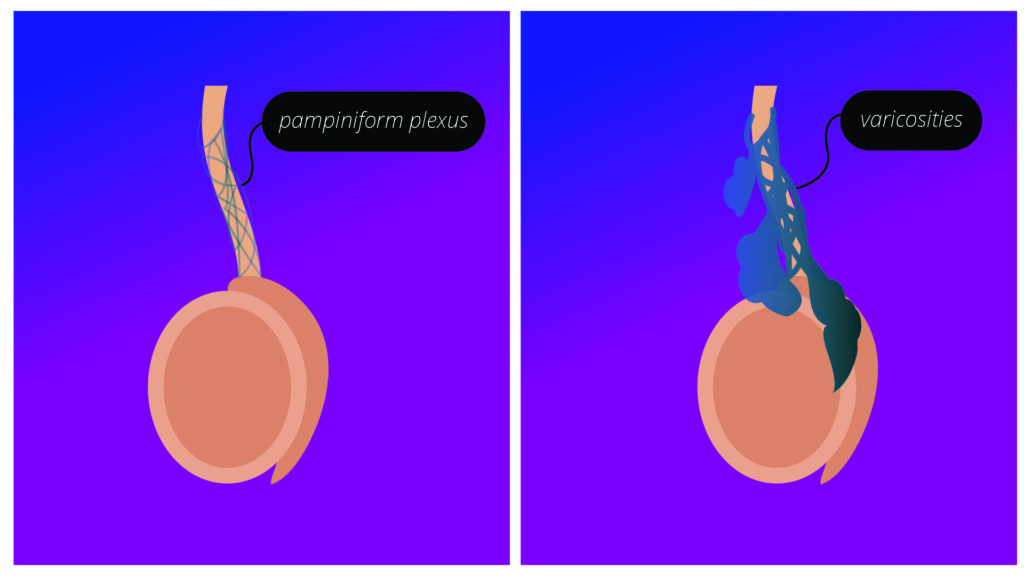
- Inflammation in the male genital tract: Any inflammation can damage the blood testis barrier.
- Sexually transmitted diseases: Chlamydia trachomatis and Neisseria gonorrhoea are by far the most common causes of sexually transmitted diseases affecting young men and women.
- Mumps orhchitis: Mumps is a virus which mainly affects the parotid glands of young boys. Unfortunately it can also affect the testis and cause severe inflammation there. The good news is mumps can be prevented with proper childhood vaccination. (of course anti vaccination movement is such an unfortunate thing)
- Autoimmune conditions: Sometimes the inflammation can take place due to autoimmune conditions, without known external triggers.
- Vasectomy : During a vasectomy, the surgeon cuts the Vas deferens & seals it to prevent the passage of sperms. But it could also cause extravasation of sperms to the blood, triggering antibody production. But hey! Why should men who underwent Vasectomy should worry about infertility? You are right! The whole purpose of vasectomy is to ensure effective long term birth control.
Causes for developing Antibodies against sperm in women.
- Pelvic Inflammatory Disease: Such a fancy name for a common Sexually transmitted disease! In women when they get infected with chlamydia trachomatis or Neisseria gonorrhoea, the infection can spread through the entire genital tract and then even into the peritoneal cavity. This dangerous Sexually Transmitted disease is one common reason for the presence of ASA in women.
Anti Sperm Antibody Testing
- When is the test done?
- When the cause of infertility is unknown, after an extensive evaluation of the couple.
- But some experts don’t recommend the test, since the test findings would not change the treatment. At the end, people whether or not you tested positive for Anti Sperm Antibodies, your doctor will suggest Assisted Reproductive Technologies like Intra Uterine Insemination (IUI).
- How is it done?
- In men, the antibodies are recognized with a semen sample. Please ready my detailed article about how to prepare for semen analysis.
- In women, the antibodies are checked in a blood sample taken from a vein in the arm.
- Another option for women is to check the antibody levels in cervical mucous, though this method is not as popular the former.
What are the treatments for Anti Sperm Antibodies?
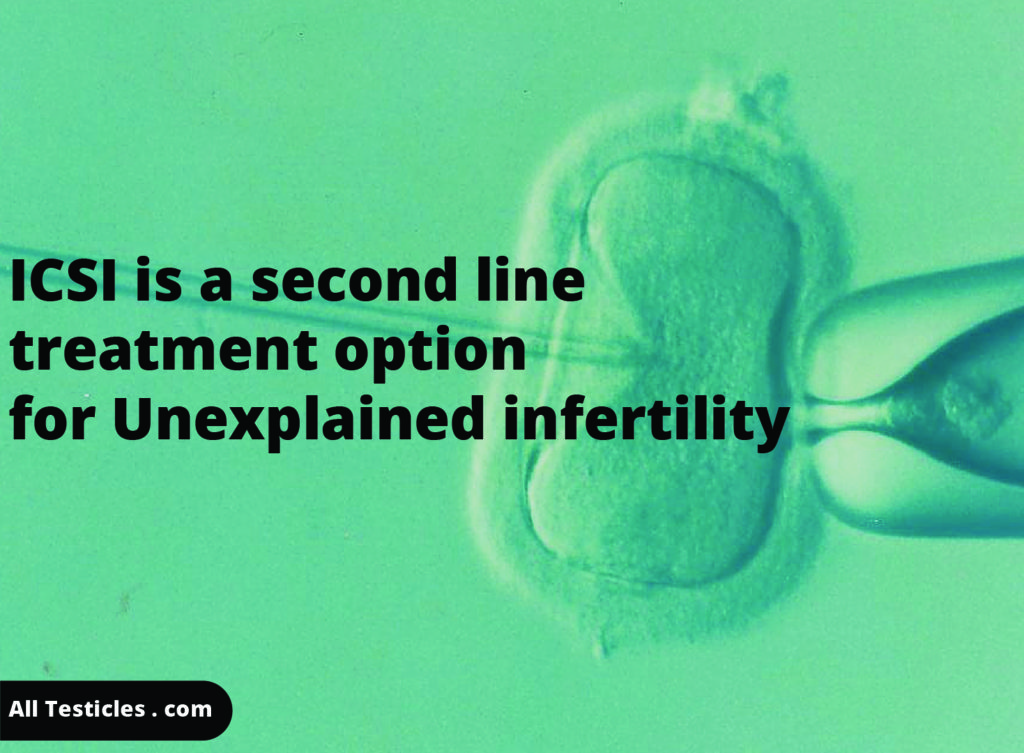
- We still have a long way to discover a specific treatment option for immunogenic infertility. But fortunately, we have alternative options which work well for immunogenic infertility.
- First let’s take a look at treatment options that lower Anti Sperm Antibody levels.
- For men, your doctor might give you a trial of immunosuppressive medications (systemic corticosteroids) to lower the antibody concentration and improve the chances of pregnancy.
- Other option is condom therapy. The couple is advised to use condoms for a time period, to prevent the repeated exposure of sperms in the female genital tract. Supposedly, the Antisperm antibody counts should decrease with time.
- Intra Uterine Insemination (IUI), where the sperms from the man are placed directly in the uterus of the female is another method for women with positive antibodies against sperms.
- Intra Cytoplasmic Sperm Injections (ICSI) and In Vitro Fertilization (IVF) could be used as second line options for this condition.
One problem with Artificial Reproductive techniques is that though they can be used as a treatment option, it can also trigger further production of Anti Sperm Antibodies (ASA) in women. Women with low levels of ASA have more success with these techniques than women with high levels of ASA.
Summary
- Anti Sperm Antibodies can damage the sperms in both men and women.
- Presence of Anti Sperm Antibodies could indicate Immunogenic Infertility.
- Sexually transmitted diseases, Prostate gland infections, Trauma, surgeries can trigger the production of Antisperm antbodies.
- Antibody levels can be tested using a blood sample, cervical mucous sample or by semen analysis.
- Systemic Corticosteroid therapy, Condom therapy are the first line treatment options. If they fail, then artificial reproductive techniques can be used as second line treatment options for Immunogenic infertility.

